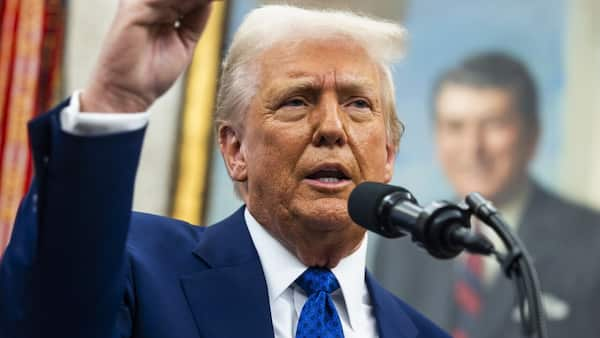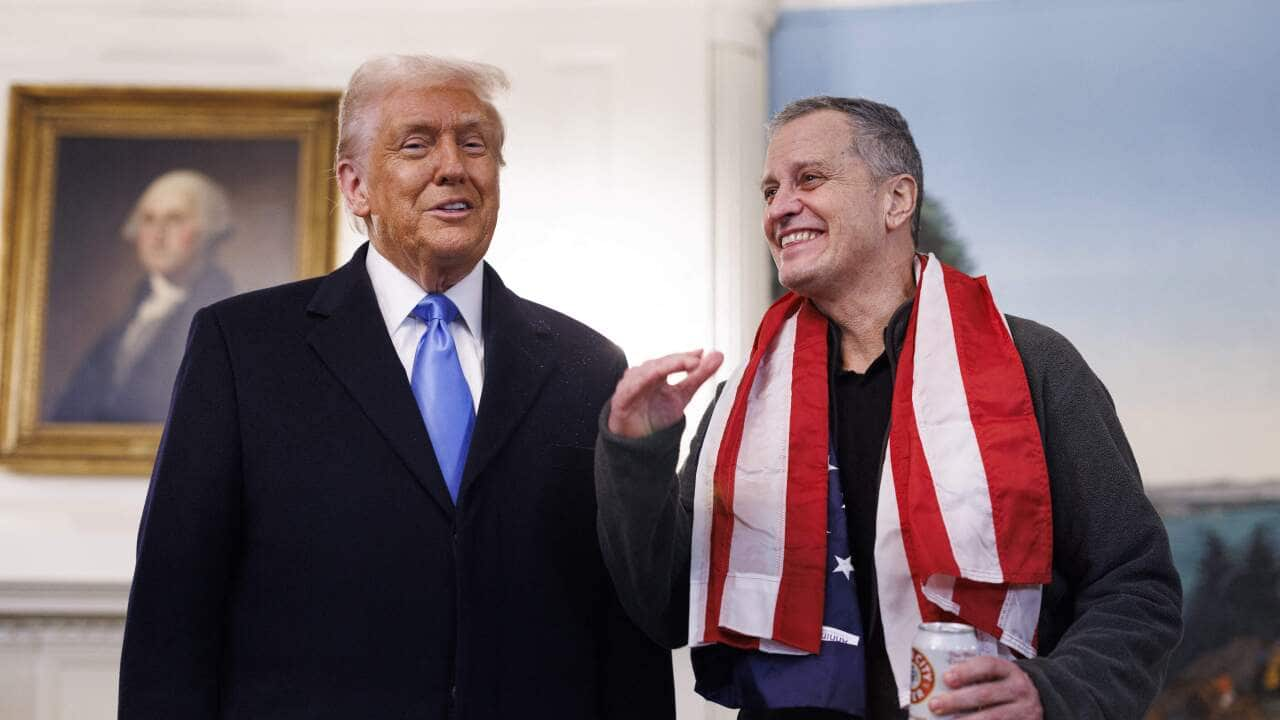United States President Donald Trump is seeking to initiate discussions to end the war in Ukraine, following.
These calls followed comments from Trump's defence secretary, who said Ukraine would need to abandon its long-standing goals of joining the North Atlantic Treaty Organization (NATO) and reclaiming all of its territory seized by Russia.
No peace talks have been held since the early months of the conflict, now approaching its third anniversary.
Trump pushing for peace talks 'immediately'
After speaking with Russian President Vladimir Putin, Trump posted on his social media platform that they had "agreed to have our respective teams start negotiations immediately".
Paul Dibb, an emeritus professor of strategic studies at the Australian National University, told SBS News Trump's conversation with Putin could be a bad sign for Ukraine's future security.
Dibb believes Putin's previous refusals to acknowledge Ukrainian sovereignty and language would make Russia unwavering in any ceasefire negotiations.
LISTEN TO

Peace talks between Russia and Ukraine could start soon
SBS News
05:51
"If he [Putin] has that attitude, then the bottom line is a complete win for Russia," he said.
"I'd be extremely worried that the Trump government is on the way to sign Ukraine down the ditch."
Is NATO membership on the table?
If peace negotiations take place between Russia and Ukraine, both sides will make demands and seek concessions.
Ukrainian President Volodymyr Zelenskyy has previously pursued NATO membership and could appeal for admission again.
Putin has repeatedly opposed Ukrainian membership, and Trump's defence secretary, Pete Hegseth, has also downplayed the prospect of Ukraine joining NATO.
NATO member states receive , which states that an armed attack on one member is considered an attack on all members.
"The United States does not believe that NATO membership for Ukraine is a realistic outcome of a negotiated settlement," Hegseth said this week.
What happens to the land Russia is occupying?
Another key part of peace negotiations will be the future of the territory Russia has seized during the war.
Jessica Genauer, a senior lecturer in international relations at Flinders University, told SBS News Ukraine could be pressured to cede territory to Russia — something that Trump would support.
"It is clear that Trump and his team are not seeking for Ukraine to regain the territory currently occupied by Russian forces," she said.
"Trump is likely looking to freeze the conflict in place along a 2025 border that would cede about 20 per cent of Ukrainian sovereign territory to Russia.
"This would undeniably be a win for President Putin. For Zelensky, such a deal would mean accepting a loss."
Even if Zelenskyy were to agree to cede territory in exchange for peace or US military support, Genauer said there's one major obstacle: the Ukrainian people themselves.
"The Ukrainian population do not want to cede 20 per cent of their territory after fighting in a bitter full-scale war for almost three years," she said.
"One major obstacle in any idea of a peace agreement that freezes territory more or less along current lines is the fierce objection of the Ukrainian population themselves."
What about Crimea?
The ancestral ownership of Crimea, along with its city of Sevastopol, is another sticking point between Russia and Ukraine.
In 2014, Russia invaded the Crimean Peninsula and then illegally annexed it from Ukraine.
The United Nations General Assembly passed a resolution on the Territorial Integrity of Ukraine, emphasising that Russia's de facto annexation of the Autonomous Republic of Crimea had no validity under international law.

Hegseth has made the US position clear.
"We want, like you, a sovereign and prosperous Ukraine. But we must start by recognising that returning to Ukraine's pre-2014 borders is an unrealistic objective," Hegseth told a meeting of Ukraine and more than 40 allies at NATO headquarters in Brussels.
"Chasing this illusionary goal will only prolong the war and cause more suffering."
Even if peace negotiations take place, there is no guarantee of a temporary ceasefire or long-term peace in the region, and, according to Hegseth, US troops will not be deployed to Ukraine.
Security in the region
Dibb believes long-term security in the region is tenuous.
He stressed withholding NATO membership from Ukraine would also undermine its future safety.
"There'll be no American troops located in Ukraine, so what sort of security would there be?"
However, he acknowledged some short-term benefits of a theoretical ceasefire.
"It will mean if it goes well that for a period of time while Russia rebuilds their military to get ready for the next phase, that it will have saved some lives," he said.
Genauer said questions remain about who would guarantee that no-one will violate any future borders between Russia and Ukraine.
"Who would ensure stability on a shared border between Ukraine and Russia under any such future agreement? Would this be a NATO force? This is very unlikely," she said.
"Would there be an international peacekeeping force? Also, unlikely.
"It may be that the conflict freezes without any formal peace agreement and remains in a frozen state along the lines of the North Korean-South Korean conflict for many years to come."




